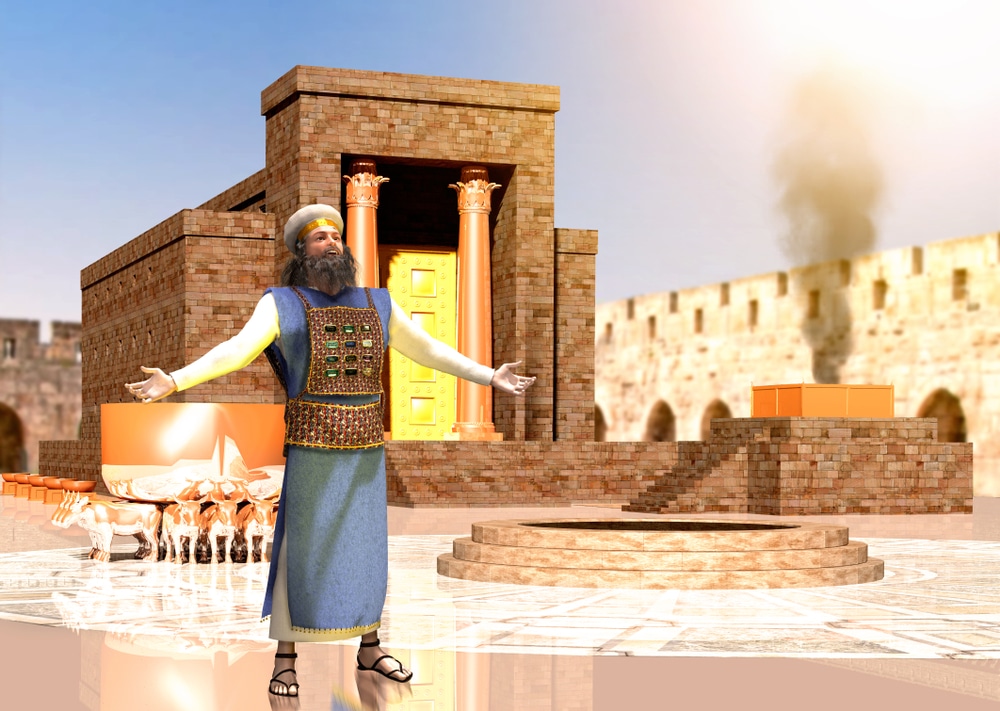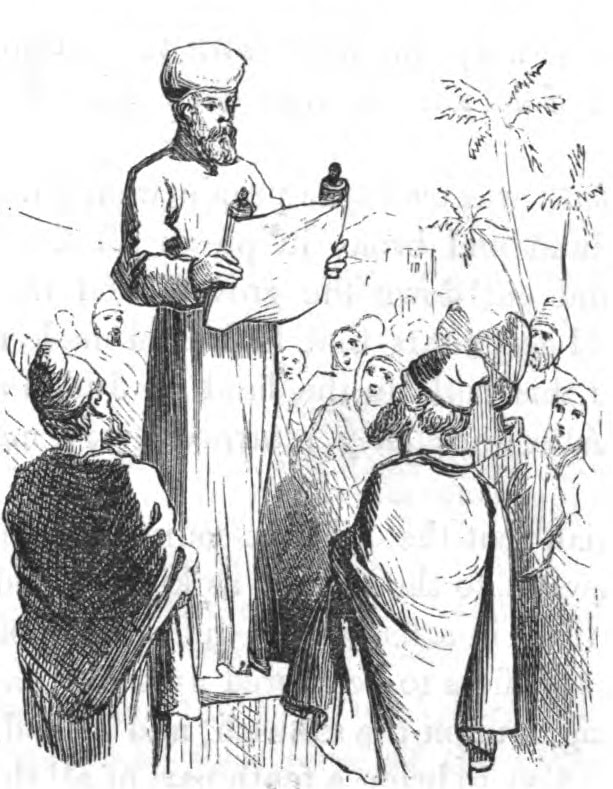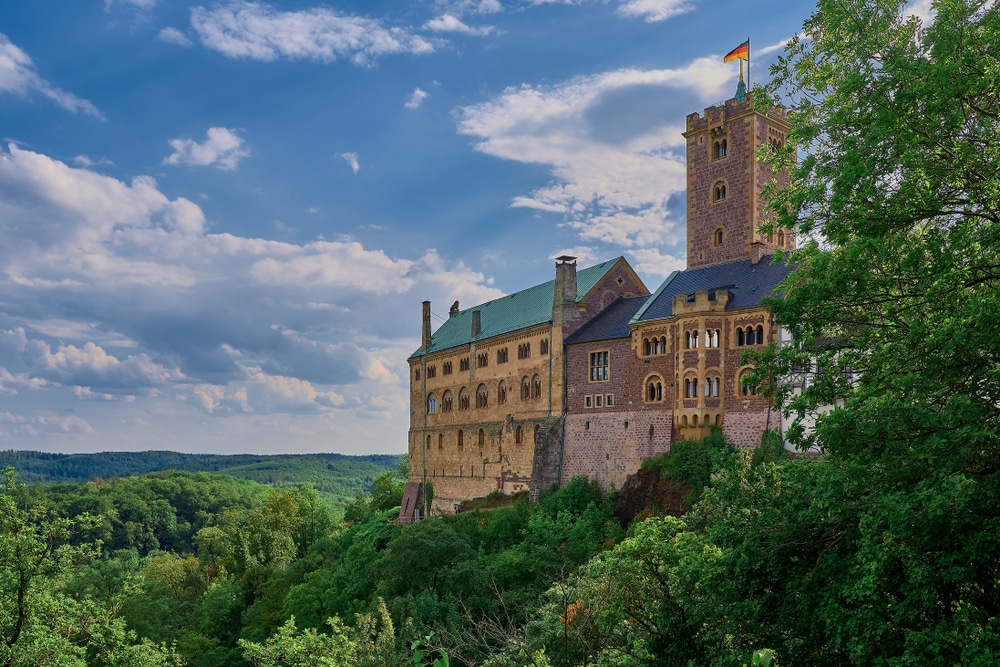Priesthood Of Believers: Then And Now

Priesthood In The Old Testament
Under the Old Covenant, God ordained a hereditary priesthood drawn from the tribe of Levi. These Levitical priests guarded God’s palace-Temple, offered gifts and sacrifices on behalf of sinners, performed sacramental worship within the Temple, raised prayers and psalms of praise to God on behalf of the people, and taught the people God’s holy law. These priests labored in types and shadows. Much of their ministry, like the whole Temple complex, pointed forward to Jesus Christ, God’s eternal High Priest. Yet there were priestly duties that weren’t limited to the formal priesthood or abolished by the coming of Christ. Some sorts of priestly work are basic responsibilities of every child of God as they partake in the priesthood of believers.
When Israel first came to Mt. Sinai, God said this to Israel:
Now therefore, if ye will obey my voice indeed, and keep my covenant, then ye shall be a peculiar treasure unto me above all people: for all the earth is mine: And ye shall be unto me a kingdom of priests, and an holy nation (Ex. 19:5-6a).

God entrusted Israel with a number of priestly tasks: she was to preserve the text of Scripture; preserve and teach the true faith; intercede for the nations of the world; and bear witness to the promise of the gospel. The first three fell largely, though not exclusively, to the Levitical priests who served in the Temple. Number four was a more general responsibility shared by all of God’s people.
Priesthood Of All Believers Verses In Scripture
The priests copied and guarded the manuscripts that constituted the Old Testament. But other faithful Israelites had copies of Scripture as well and no doubt treasured and protected them (cf. Dan. 9:2; 2 Tim. 3:15). The priests were to know the word of God thoroughly: they were to know what the law said, and they had the authority and responsibility to defend and teach its doctrine. They were to teach God’s people His law. But God also commanded the common layman to know His word and to teach it to his children (Deut. 6:6-9).
The priests alone conducted formal sacrificial worship, and particularly at the Feast of Tabernacles when they sacrificed for the nations, the priests mediated for all the peoples of the world (Num. 29:12-38).[1] But along with their priests, the faithful in Israel raised prayers and lyrical petitions (psalms) for the salvation of the Gentiles that Messiah would accomplish (e. g., Ps. 46; 47; 67; 72; 96; 97; 98; 110; 117).
But when it came to public testimony to God’s promises, all of God’s people played a part. For God planted Israel at the crossroads of three continents. Trade routes from Europe and Asia passed through Israel into Africa. Merchants, diplomats, and refugees regularly traveled to and through Israel. Most didn’t come to worship. But as they passed through, they talked with merchants, craftsmen, fishermen, shepherds, and farmers. In these everyday conversations, God’s people were to tell of Yahweh’s covenant mercies, of His promises to Israel, and of His redemptive plans for the world. Every Israelite was supposed to know God’s word well enough to be a conversational evangelist.
Priesthood of Believers In Prophecy
The prophet Isaiah twice predicted a day when God would draw His priests, not merely from the tribe of Levi, but from all of Israel and from all the nations of the earth (Isa. 61:6; 66:19-21). The New Testament writers tell us that this priesthood of believers is now a reality.
Ye also, as lively stones, are built up a spiritual house, an holy priesthood, to offer up spiritual sacrifices, acceptable to God by Jesus Christ. . . But ye are a chosen generation, a royal priesthood, an holy nation, a peculiar people; that ye should shew forth the praises of him who hath called you out of darkness into his marvelous light (1 Pet. 2:5, 9).
Unto him that loved us, and washed us from our sins in his own blood, and hath made us kings and priests unto God and his Father; to him be glory and dominion for ever and ever. Amen (Rev. 1:5b-6; cf. 5:10).
There are no more blood sacrifices; there is no more Temple. All the rituals, rites, and restrictions tied to both are gone. But the sort of priestly duties God granted to all His people under the Old Covenant remain. New Covenant believers still have the authority and duty to preserve the word of God; to maintain, defend, and teach the true faith; to intercede for the heathen, near and far; and to bear witness to the gospel before the wide world. But God’s people today have greater advantages than Israel ever did under the Old Covenant.
Priesthood of Believers Blesses All Races
We have a completed Bible that contains the Father’s full revelation of Himself in His Son. We have the assurance of redemption accomplished, of an ascended, sovereign Lord and a High Priest who faithfully intercedes for us. The national and ethnic barriers of the Old Covenant are gone, and we have a commission to go to the ends of the earth to evangelize and disciple all nations. And we have the indwelling Holy Spirit, whom the ascended Christ has poured out to equip, encourage, and empower us for this work.
These are all New Covenant realities that have been in place since Jesus ascended to His Father. But the growth of His kingdom within history has added other useful blessings: among these we can list religious liberty, representative government, and economic growth wherever the gospel has taken root; technological advances in printing, communication, and travel; and theological growth as the Church has struggled to defend the faith against heretics and unbelievers. The New Covenant priesthood of believers is a more active and aggressive force for God’s work than the formal or broader priesthoods of the Old Covenant ever were.

Effects of The Protestant Reformation And “Priesthood”
The Protestant Reformation highlighted the priesthood of all believers. This doctrine was the inevitable corollary of justification by faith alone and Sola Scriptura. The justified man, the man with the Bible in his hands, must truly be God’s priest. He must be God’s ambassador, an agent of justice and reconciliation. He, with his fellows, ought to be a powerful force within society. It should be no surprise then, that as the Reformation took root, spread throughout northern Europe, and eventually jumped the Atlantic to establish Christian colonies in the New World, certain social and political fruits became increasingly prominent.
First, the reality of the priesthood of the believer demanded literacy. The knowledge of God in Christ, the preservation and transmission of the faith, participation in public worship, and universal evangelism all required a literate priesthood. God’s people needed to know how to read and write.
Second, this demand for literacy brought with it a zeal for formal education. Everyone needed to learn to read in the fullest sense of that word. Children, of course, could generally pick up the necessary skills more easily than their parents. And so faithful parents wanted schools for their children.
Priesthood Of Believers Flows Into Education and Wealth
Third, the demand for schools created childhood as we now know it. Parents released their children from customary chores and labor so they could attend schools where practiced teachers could prepare them for a real-world life of literacy.
Fourth, as literacy became commonplace, the literate quickly learned how to use that literacy in business, finance, and industry. Literacy led to a more effective and productive middle-class.
Fifth, God’s priests worked skillfully and diligently in all of their labors. They strove for excellence. For the very work of their hands… carpentry, farming, fishing, shoemaking, tailoring… whatever…was all a function of priesthood of believers and thus… worship to God. So the Protestant work ethic was born, and economic growth became a way of life.
The Politics Of The Priesthood
Sixth, those who embraced the tradition of the Reformation were bold to challenge kings and parliaments with the law of God. Many did not hesitate to put their finger on the relevant text of Scripture and tell the kings and nobles of Europe, “Thus saith the Lord!” Luther and Knox come quickly to mind. So do the Puritan Parliament that dethroned Charles I and the Scots Presbyterians who made up a significant part of the Colonial armies.
Seventh, being used to written covenants and laws, God’s priests wanted to institute similar arrangements in civil affairs. They demanded constitutions, bills of rights, and clear and just laws, laws that reflected the law of God they knew from their Bibles. They were champions of limited government and political freedom, because they saw the “priesthood of believers” worldview as having implications.
Evangelism And Everyday Life In The Priesthood of Believers
Eighth, God’s priests eventually set their sights on the ends of the earth. Some set out as missionaries; some set up boards and societies to support them; others gave money and prayed. The late 1700s saw the greatest explosion of missionary activity since the 1st century. And these missionaries went with the hopes both of winning souls and of transforming cultures through the power of the gospel.
Ninth, being used to great responsibilities within God’s kingdom, these priests generally felt competent to handle great responsibilities in every other sphere of life. They learned, little by little, not to ask the State to do their work or guarantee their success. They learned to act on their own initiative. Priests worked alone or in voluntary associations to effect positive change. They became explorers, pioneers, reformers, inventors, entrepreneurs, journalists, investors, and educators. They labored to transform society in terms of written word of God.
Priesthood of Believers As World Transforming
The doctrine of the priesthood of the believer has transformed Western civilization. It planted the seeds of limited, constitutional government, of economic freedom, of technological growth, and of the worldwide missionary movement of the last two and a half centuries. But today this spiritual capital is running thin. It’s time for us, as Christians, to rediscover our calling and authority under Christ. It’s a dark time. The world needs us to be salt and light.
[1] 70 bullocks for the 70 original nations of Genesis 10, plus one for Israel.
Copyrights are reserved @ Heirloom Audio Productions LLC.